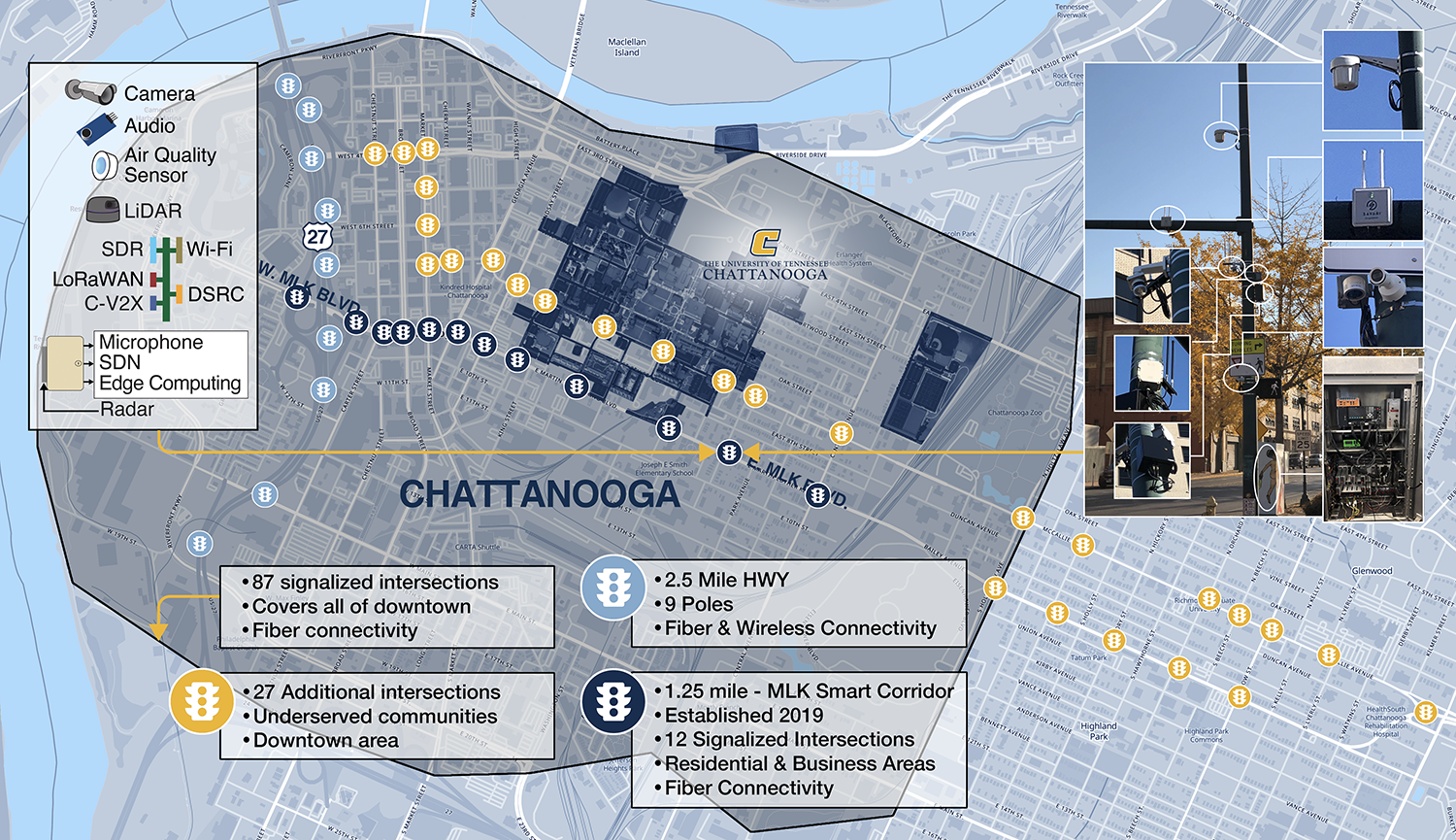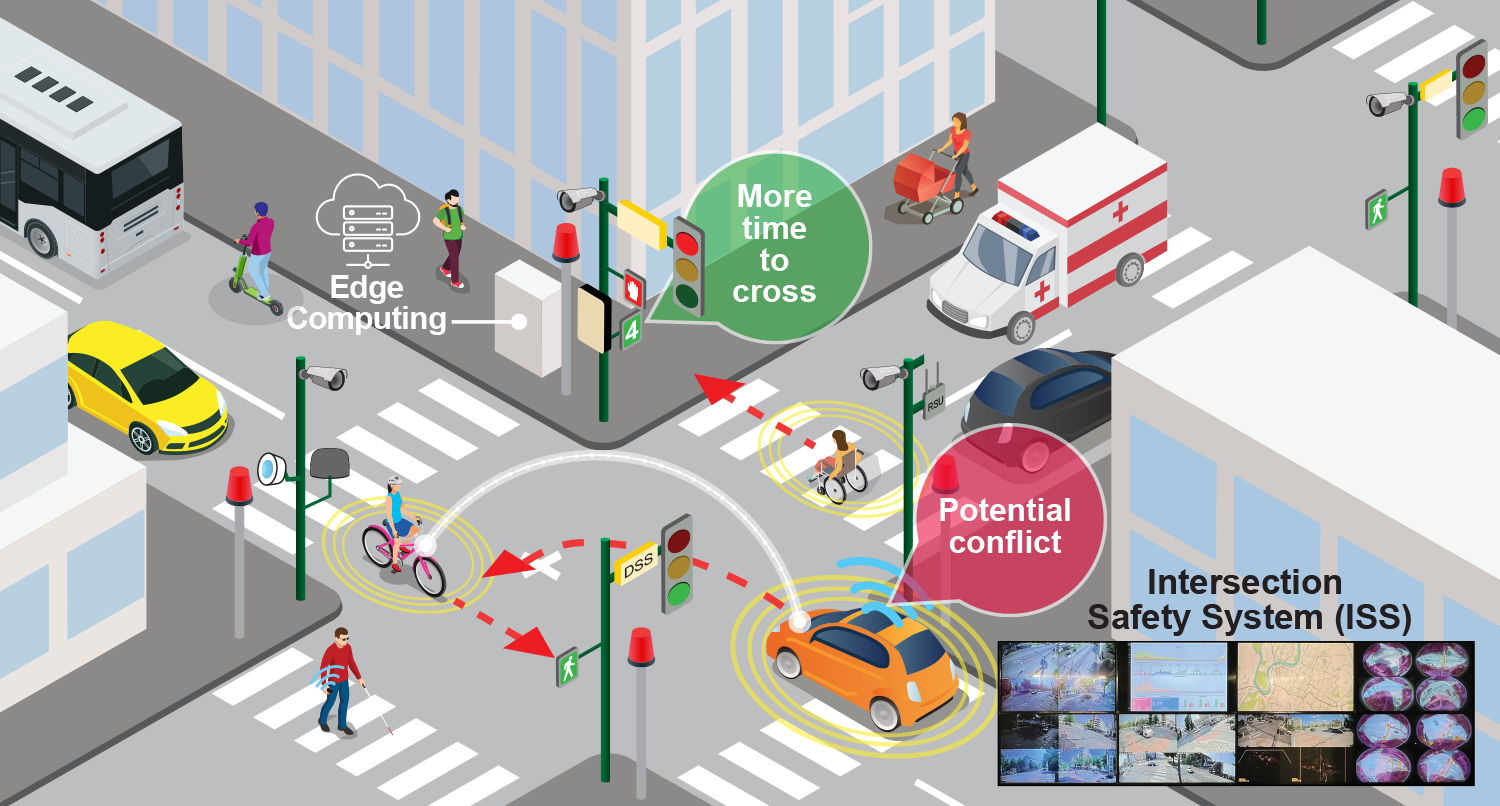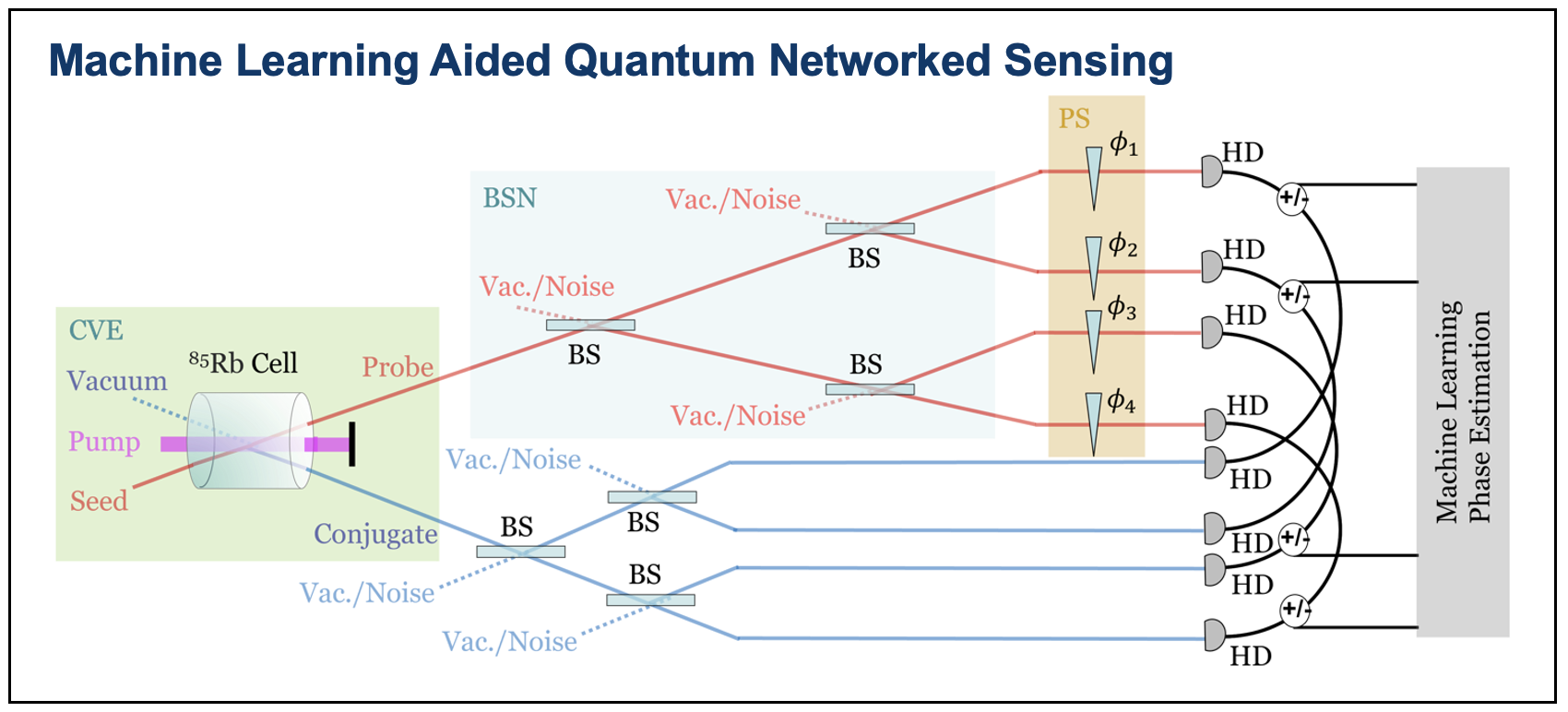-
-
 UTC Research Institute's Testbed-As-A-Service enables advanced research & development in a real-world environment.
UTC Research Institute's Testbed-As-A-Service enables advanced research & development in a real-world environment. -
 Intersections along the testbed are outfitted with a wide range of sensing, communications & compute technologies. All supported by a centralized data integration platform.
Intersections along the testbed are outfitted with a wide range of sensing, communications & compute technologies. All supported by a centralized data integration platform. -
 Machine learning aided quantum networked sensing.
Machine learning aided quantum networked sensing. -
 Chattanooga hosts the first commercially available quantum network.
Chattanooga hosts the first commercially available quantum network.
University of Tennessee at Chattanooga
The University of Tennessee at Chattanooga (UTC) Research Institute is intended to bolster UTC’s focus on building cross-disciplinary teams and catalyzing partnerships to establish enduring programs of excellence to address challenges that can’t be solved using a single-discipline approach. Two research centers fall under the UTC Research Institute: Center for Urban Informatics and Progress (CUIP) and Quantum Center.
Center for Urban Informatics and Progress (CUIP):
CUIP is a smart city and urbanization research center at the University of Tennessee at Chattanooga studying how we can adapt to our generation’s challenges to create a safer, smarter, and healthier future for all on our streets & roadways. CUIP is pioneering ways to improve traffic flows, reduce vehicle and pedestrian accidents, decrease carbon emissions, optimize healthcare patient outcomes.
UTC, in collaboration with the City of Chattanooga, Chattanooga’s power and communication board, and other local municipalities, has built a real-world R&D facility in downtown Chattanooga, TN with cellular vehicle-to-everything (C-V2X) technologies, advanced intelligent transportation system (ITS) devices, and edge/ cloud computing capabilities.
Fueled by a team of professors, students, staff and collaborators, this test facility covers over 100 smart intersections and was built for Chattanooga to be a research hub for electric, connected, and automated vehicle transportation.
Quantum Center:
In 2022, The University of Tennessee at Chattanooga (UTC) launched an institutional initiative in Quantum Information Technology with the goal to establish a program known for excellence in education, innovation, and economic development enabled by Quantum Technology (QT). The Quantum Center is the focal point for cross-disciplinary teams performing applied research and development (R&D) and delivering an effective education program of great value to students and individuals already in the workforce. Of particular interest are use cases of QT in areas such as energy systems, smart city applications, including transportation, logistics, and possibly other areas.
Center for Urban Informatics and Progress (CUIP):
CUIP is a smart city and urbanization research center at the University of Tennessee at Chattanooga studying how we can adapt to our generation’s challenges to create a safer, smarter, and healthier future for all on our streets & roadways. CUIP is pioneering ways to improve traffic flows, reduce vehicle and pedestrian accidents, decrease carbon emissions, optimize healthcare patient outcomes.
UTC, in collaboration with the City of Chattanooga, Chattanooga’s power and communication board, and other local municipalities, has built a real-world R&D facility in downtown Chattanooga, TN with cellular vehicle-to-everything (C-V2X) technologies, advanced intelligent transportation system (ITS) devices, and edge/ cloud computing capabilities.
Fueled by a team of professors, students, staff and collaborators, this test facility covers over 100 smart intersections and was built for Chattanooga to be a research hub for electric, connected, and automated vehicle transportation.
Quantum Center:
In 2022, The University of Tennessee at Chattanooga (UTC) launched an institutional initiative in Quantum Information Technology with the goal to establish a program known for excellence in education, innovation, and economic development enabled by Quantum Technology (QT). The Quantum Center is the focal point for cross-disciplinary teams performing applied research and development (R&D) and delivering an effective education program of great value to students and individuals already in the workforce. Of particular interest are use cases of QT in areas such as energy systems, smart city applications, including transportation, logistics, and possibly other areas.
Products/Services
- Energy & Environment
- Enabling Technologies
- Mobility
- Infrastructure & Building


